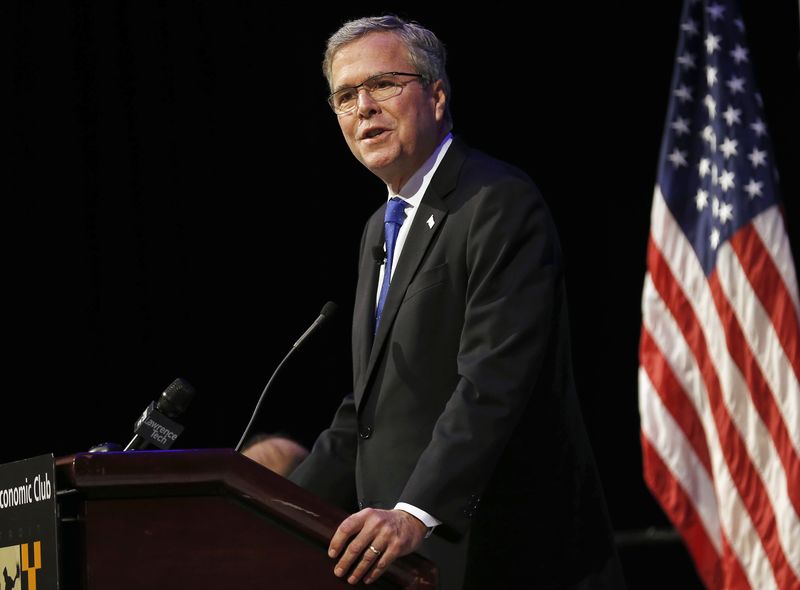(Corrects to clarify that Carson is a former Fox News personality in paragraph 6)
By Steve Holland
WASHINGTON (Reuters) - With a dozen Republicans thinking seriously about running for president in 2016 and 10 more talking up the idea, it's a good time to be an experienced campaign hand.
Potential candidates are scrambling to sort through the rosters of campaign veterans in the early voting states of Iowa and New Hampshire and elsewhere in a talent search that reflects the fact that the Republican field for 2016 is the largest in recent memory.
The competition, dubbed by some as a "staff primary," aims to find the right of mix of get-out-the-vote organizers, digital experts, fund-raising stars and messaging professionals able to set up a functioning campaign.
"There is a known universe of operatives with many of them headquartered in early primary states," said Republican strategist Kevin Madden, a senior adviser to Mitt Romney in his 2012 presidential campaign. "Right now I think the contest is focused on all the candidates trying to go after that universe of staffers."
As many as 21 Republicans are in various stages of considering a presidential run, far more than the dozen or so who gave it a go four years ago. Of these, probably 10 or 12 are really serious and the rest are testing the waters or are trying to promote their personal brand.
Every ideological slice of the Republican spectrum is represented, from mainstream former Florida Governor Jeb Bush to Texas Senator Ted Cruz, a favorite of the small government Tea Party movement, to libertarian Kentucky Senator Rand Paul to retired neurosurgeon Ben Carson, a former Fox News personality.
Others exploring presidential runs include New Jersey Governor Chris Christie, former Hewlett-Packard CEO Carly Fiorina and former Texas Governor Rick Perry.
The field is so large because there is no nominee-in-waiting as there is in the Democratic arena, where former Secretary of State Hillary Clinton is widely seen as having a lock on the Democratic nomination should she choose to run. There is also a younger generation of Republican leaders eager to make their mark like Wisconsin Governor Scott Walker, who is 47, and Florida Senator Marco Rubio, 43.
PALIN, TRUMP FLIRT
Also, several Republicans have found it profitable for their careers or personal brands to flirt with a candidacy. Personalities like former Alaska Governor Sarah Palin and businessman Donald Trump frequently appear at Republican events but have made no actual moves toward a candidacy.
Because of that, many Republican officials believe the actual number of people who will formally launch campaigns could be closer to the usual 10. Rubio, for example, is under pressure to run for re-election in his home state and could easily set his sights on future presidential campaigns instead of 2016.
"There's a big difference between talking about running and actually running," said Republican strategist Scott Reed. "Anyone can talk about running, anyone can go to New Hampshire and Iowa. There's a very select few who actually file the papers and enter the race."
The better-known candidates, who are seen as having a solid chance to advance beyond Iowa and New Hampshire in the race for the Republican presidential nomination, are the most likely to attract top staff talent.
Bush's hiring of top Iowa operative David Kochel, who was a Romney backer in 2012, was a major boost to his Iowa prospects, and now other Romney loyalists in other states are listening to offers and searching for the right home.
The move by Christie to place former aide Matt Mowers as executive director of the New Hampshire Republican Party gave him an early opening in the key state. Mowers left the job last month amid speculation he would join Team Christie.
Walker, who wowed conservatives at an Iowa event last month, is on a mini-surge in Iowa and New Hampshire but has yet to develop much of an organization in New Hampshire.
"He has yet to come to New Hampshire," said Mike Dennehy, a long-time Republican campaign veteran who has signed up to work for Texas Governor Rick Perry. "He doesn't even know anyone here."
When candidates seek top-level talent in states like New Hampshire or Iowa, they sometimes have to sell themselves. Political operatives look for personal chemistry as well as direct access to the candidate, who also needs to demonstrate they are serious about competing in the state.
Being a top operative in an early state can be a career booster. White House press secretary Josh Earnest was the Iowa communications director for Barack Obama in his winning 2008 presidential campaign. Sara Taylor Fagen was a top Iowa staffer in George W. Bush's 2000 presidential campaign and wound up as a senior White House political aide.

"Each cycle produces new talent that we may not have heard from yet. One of the advantages of being in Iowa is top talent tends to be cultivated here," said Iowa Republican strategist Tim Albrecht.